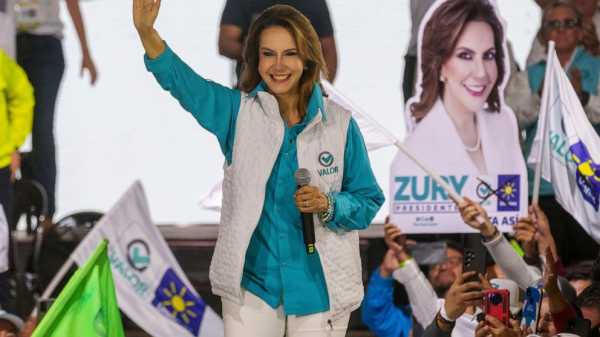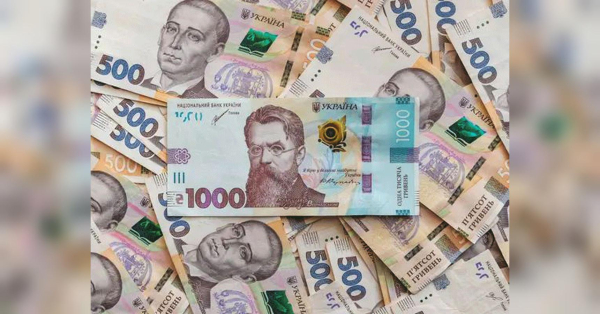
GUATEMALA CITY — As Guatemala prepares to elect a new president Sunday, its citizens are fed up with government corruption, on edge about crime and struggling with poverty and malnutrition — all of which drives tens of thousands out of the country each year.
And for many disillusioned voters — especially those who supported three candidates who were blocked from running this year — the leading contenders at the close of campaigning Friday seem like the least likely to drive the needed changes.
Guatemala’s problems are not new or unusual for the region, but their persistence is generating voter frustration. As many as 13% of eligible voters plan to cast null votes Sunday, according to a poll published by the Prensa Libre newspaper.
Rolando Quiroa, 62, a lawyer in downtown Guatemala City, said he had no hope for positive change in Guatemala because he sees the leading candidates as just a continuation of failed politics.
Quiroa, who declined to say who he would vote for, said Guatemala’s parties had conditioned voters to think merely of what benefits are promised in exchange for votes, but that he wants "a vision to completely change the country.”
“Those with the least chance are the ones who possibly have a different idea of governing,” Quiroa said.
With no single candidate among the field of two dozen candidates polling anywhere near the 50% threshold required for victory Sunday, a second round of voting between the top two vote-getters appears likely.
The leading candidates heading into the weekend are on the conservative end of the political spectrum. Former first lady Sandra Torres, making her third bid for the presidency, has had success running a populist campaign promising support for those in need.
The real battle appears to be for the second spot in what would be an Aug. 20 runoff. Diplomat Edmond Mulet is wrestling with the ultra-conservative Zury Ríos Sosa, daughter of late dictator Efraín Ríos Montt. They promise heavy-handed tactics like in neighboring El Salvador to address Guatemala’s crime.
But popular candidates who did appear willing to challenge the status quo, like Thelma Cabrera, an Indigenous leader from the Maya Mam, and Carlos Pineda, a conservative populist who cast himself as a renegade, were kept off the ballot by electoral authorities.
Some of voters' cynicism could be the result of years of unfulfilled promises and what has been seen as a weakening of democratic institutions.
“The levels of democracy fell substantially, so the (next) president is going to inherit a country whose institutions are quite damaged,” said Lucas Perelló, a political scientist at Marist College in New York and expert on Central America. “We see high levels of corruption and not necessarily the political will to confront or reduce those levels.”
Experts say the latest democratic backsliding can be traced to 2018, when then-President Jimmy Morales decided to end a United Nations-backed anti-corruption mission that had made strides in breaking up powerful networks of corruption reaching all the way to the presidency.
Morales appointed Attorney General Consuelo Porras, who has since been sanctioned by the U.S. government and accused of corruption.
The stability of Guatemala’s democracy is of keen interest to the United States, largely because it remains one of the top sources of emigration in the hemisphere.
When U.S. Vice President Kamala Harris visited Guatemala in June 2021, the Biden administration’s priority was getting a handle on migration flows. Harris made corruption one of the priorities in her talks with President Alejandro Giammattei.
The Biden administration pushed the idea that Guatemalans had to see a future for themselves in their own country to slow migration to the U.S. But a month after Harris’ visit, the Biden administration announced that it had lost confidence in Guatemala’s commitment to battling corruption.
Not only are its prosecutors no longer pursuing many of the cases they had started, but the Attorney General’s Office has opened cases against its own former anti-corruption prosecutors and some judges who specialized in those cases. More than two dozen, including former anti-corruption prosecutor Juan Francisco Sandoval, have fled the country.
Entrenched corruption has been blamed for severe inequality that leaves Guatemala’s poorest with little hope for advancement. The money sent home by migrants – mostly in the United States – is critical in keeping many Guatemalans afloat. Remittances amounted to some 20% of Guatemala’s gross domestic product last year and are expected to reach a record $20 billion this year.
The migration of Guatemalans to the U.S. border this year has been below what it was during the past two years, but there still have been more encounters with Guatemalans during this fiscal year than with citizens of any other Central American nation. Honduras is a close second.
Poverty, reflected in worrisome levels of malnutrition, is another factor driving Guatemalans out of the country. Victor Aguayo, director of nutrition and infant development for UNICEF, said the situation in Guatemala has worsened in the past two years.
Perelló, of Marist College, said that high levels of null votes, blank votes and abstention can be expected from Sunday’s vote. “The levels of dissatisfaction that exist are quite high,” he said.
Ana Esquivel, a 30-year-old shopkeeper in Guatemala City, said she had never voted and didn’t plan to start Sunday.
For one, she has to work Sunday to support her 5-year-old daughter, but she also expressed strong apathy and suspicion.
“I feel like none of (the candidates) are qualified because right now everyone walks around saying ‘I’m going to do this,’” Esquivel said. “When they’re in the presidency they don’t do what they say. It’s like it’s all a lie.”
Sourse: abcnews.go.com






